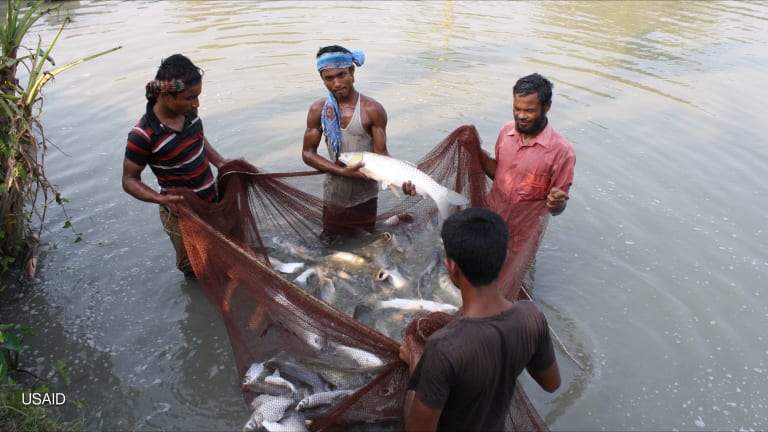
The worst drought in the United States in over half a century has some experts warning another global food crisis is close at hand. The cost of maize and soybeans has climbed to record levels and could continue to rise. While some analysts warn against alarmist predictions, everyone agrees the next few weeks are pivotal.
“The window is fairly narrow,” said Eric Munoz, a policy adviser with Oxfam America. Unless rain comes soon to the giant corn and soybean fields of the United States, farmers could experience significant declines in productivity, harvest and stocks for next year, causing prices to soar.
The cost of staple grains is expected to rise in the next two months to “fresh highs,” then taper off, according to a poll of nine analysts. Corn is already at an all-time high, and the U.S. Department of Agriculture’s harvest estimates could be revised downward in August if crop conditions do not improve.
With only a few countries exporting staple grains, weather shocks like the current drought have global price ramifications. As the largest corn producer, the world is especially dependent on the United States to meet global maize demand.
Aid agencies also feel the pinch when the cost of maize and other grains rises. The World Food Program, for example, is funded through voluntary contributions, so when prices go up they are simply unable to buy the same amount of food, at a time when more and more people need help.
The escalation in food prices resulting from the U.S. drought makes families who were already struggling to cope with harvest failure in other parts of the world, like the Sahel, even more vulnerable to food insecurity.
The result could be catastrophe for the rural poor, who spend up to 80 percent of their income on food.
“We definitely saw in 2008, when food prices spiked, that a number of developing countries had very, very high food import bills as a result of these increased food prices,” Munoz said. But it’s not just a story about major grain importers like India and China. “At the local level, you certainly do see some of that price transmission affecting the prices of staple commodities in local markets,” Munoz said.
Instead, higher food import bills are transmitted to food available at local markets globally. Some poor consumers in developing countries respond to price spikes by switching to another type of grain, but that sends the cost of the substitute up as well. For others, a specific food culture puts substituting off the table.
“In some instances they’ll simply eat less,” Munoz said. A balanced diet might erode into a less nutritious one, or it might just get smaller or less frequent.
The effect of higher food prices on children’s nutrition warrants special attention since malnutrition is a driver of a number of human development factors — the kinds of development that later in life will have an impact on a country’s labor productivity and economic growth, Munoz pointed out.
That long-term approach came to the fore during last year’s drought and famine in the Horn of Africa, when questions on how to increase resilience to food crises took up prime real estate in meeting agendas worldwide. Linked to that discussion was one about early warning, with questions over why international response wasn’t faster as food prices rose and hunger took hold.
That food crisis was caused in part by speculation that prices would rise — speculation that led to very real cost increases. The global food price burden sparked riots in 30 countries, and by some accounts helped provoke the Arab Spring in 2011. Families who never bounced back from these food crises will be in a particularly vulnerable state to handle the one seemingly on the horizon.
Read more:
Read more development aid news online, and subscribe to The Development Newswire to receive top international development headlines from the world’s leading donors, news sources and opinion leaders — emailed to you FREE every business day.








